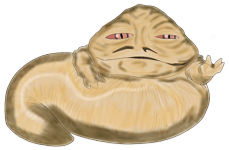immunology wars
may your immune system defend you
Parasites

Parasitic infections in humans tend to be of two types, either protozoan or helminths. Protazoa are single cells parasites, causing diseases such as malaria or amoebic dysentery, whereas helminths are multicellular worms including tapeworms and flukes. Parasites are a major global health challenge with an estimated 25% of the world's population suffering from some form of parasite infection
The immune response to parasites is complex and varied depending on whether the parasite is intra or extracellular. Intracellular parasites are cleared by an inflammatory type 1 response, similar to that involved in dealing with bacteria or viruses.

Source: NIAID (CC)
Antibodies may bind to features of multicellular parasites that are required for feeding or reproduction as well as marking the parasite for destruction, a processed called opsonisation.
Cells
- Basophils
- Eosinophils
- Mast Cells
- Neutrophils
- Monocytes / Macrophages
- Natural Killer Cells
- Dendritic Cells
- B-Lymphocytes
- T-Lymphocytes
- CD4+ T-Lymphocytes
- CD8+ T-Lymphocytes
- Regulatory T-lymphocytes
- Th17 Lymphocytes
